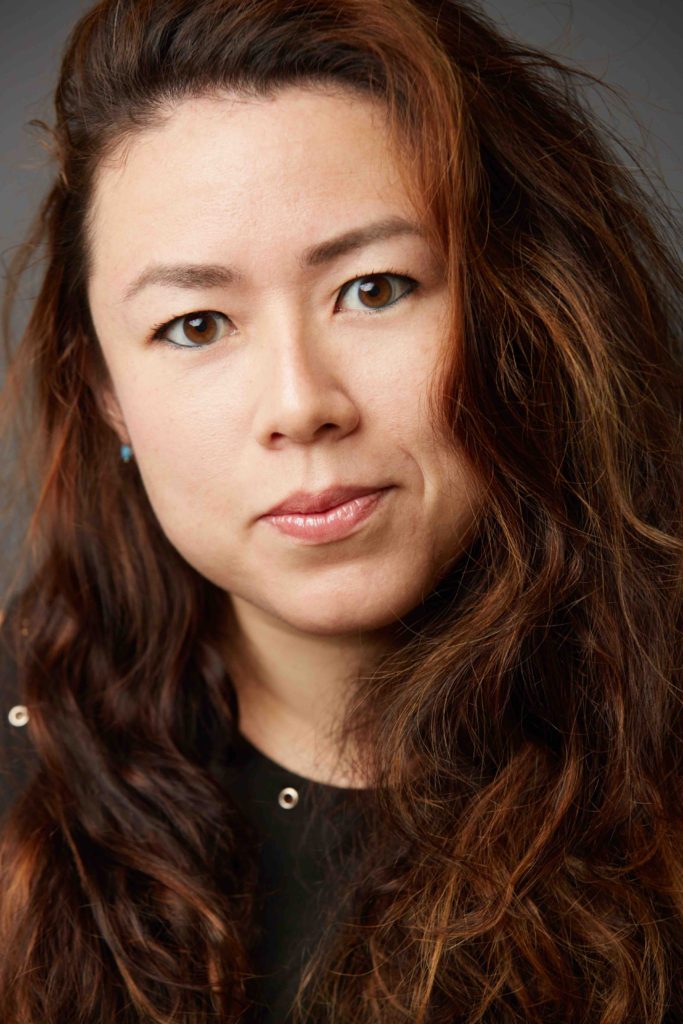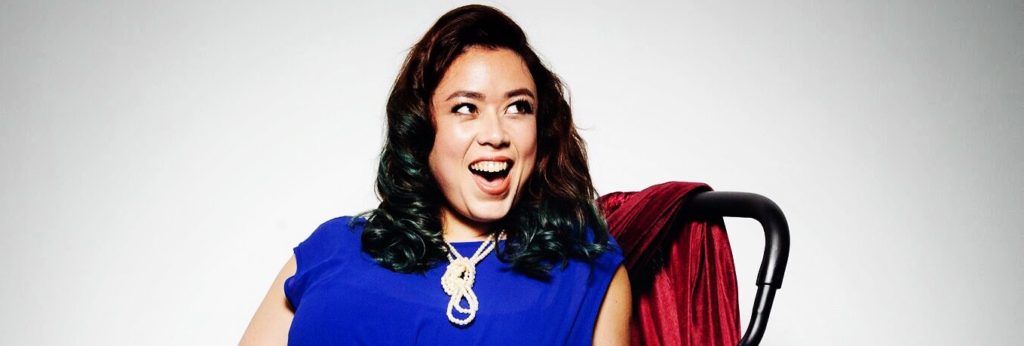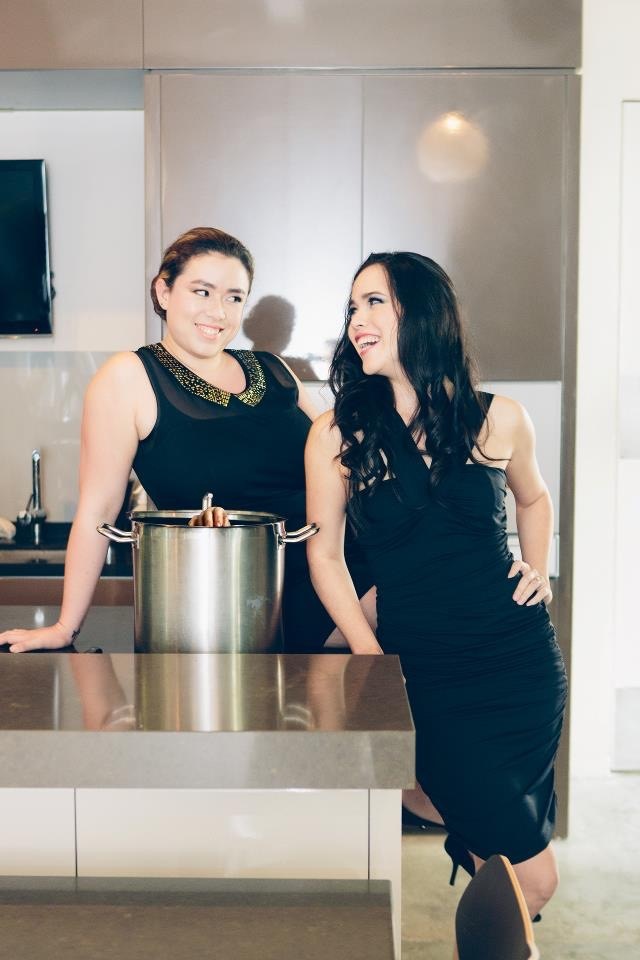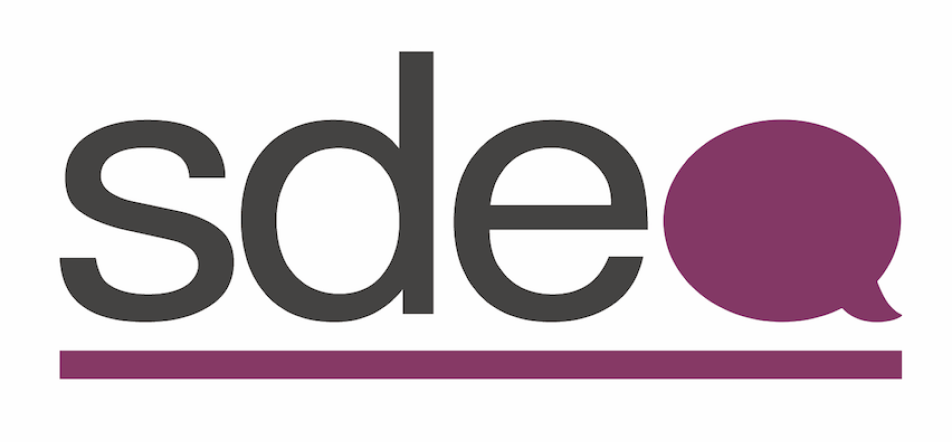SDEA Spotlight : Rosemary McGowan
by SDEA

SDEA Spotlight is a series of short interviews with SDEA members that peel back the curtain behind their practice, their beliefs about arts and drama education and their influences. Rosemary McGowan has served on the executive committee from 2011 to 2015 and has contributed to many sub-committees over the years. In her practice, Rosemary finds ways to integrate theatre and counselling as a full-time addictions counsellor at The Cabin Singapore and as a freelance applied theatre practitioner. 1. What are you working on at the moment? I'm working on an interactive art/immersive performance/performance piece about addiction - clearly it's in its very early stages as I haven't even decided on the concept! I've been wanting to do a show about addiction for ages, and I started putting bits and pieces out onto paper a couple of months ago. Still has a while to go! Other than that, my job as a full time addictions counsellor tends to keep me busy! 2. What’s the direction of your work? Has it changed over the years? Yes, and no. So it's changed in the sense that I now have a full time, work-in-one-place job, which has been a lot more emotionally and mentally draining that I think I really expected, I also primarily work with adults now, as opposed to young people. However, the work that I want to keep doing from an applied theatre perspective has not changed. I am still interested in using theatre as a vehicle for starting conversation, and for education and change, I use drama skills with some of my clients, and I still act. 3. What is a dream project that you hope to do? I would like to do my addiction project!! I literally have been talking about this since before I took on this job! It has a number of stages. I'd also like to find a way to integrate the two things I enjoy - the theatre and counselling - more. I want to get things out to a wider number of people, and get more people talking, thinking, questioning, challenging, understanding things that we don't usually talk about - self harm, addiction, underage pregnancy, relationships. But first, this addiction project!
4. How did you start out doing what you do?
So I initially started out in youth theatre, I was a member of (at that time) the only free youth theatre around, and I had always loved creating theatre, and being in a theatre. I did a masters in applied theatre at Central School of Speech and Drama and then realised that working with young people was something I really enjoyed. When I first came back to Singapore, I worked with all sorts of young people - from 3 year olds who needed help going to the toilet, to primary 3 year olds who were so gangsta they would pick racial fights with each other, to secondary 3 year olds who challenged me, talked back and were general pains in the arse! So, of course, I worked out that secondary school kids were my favourite age group!
Then, because I also loved teaching, I got into teaching more, and freelanced for almost 10 years, teaching drama, directing, running my own project-based youth theatre that looked at issues relevant to young people. At one point, I was encountering a number of kids who were self harming, and thought, "Hmm, better make sure I'm not screwing them up when they tell me what's happening", and after careful consideration, decided to do a Masters in Counselling, and I did! Part of that was doing an internship, and I'd already picked out who I would like to do one with, because I'd met someone who did Psychodrama and I'd started volunteering with her, and she worked with addicts. So that's how that started! Through my internship, I met my current supervisor, who I now work with at The Cabin Singapore! PHEW!
5. How do you keep your work fresh?
I work with issues and concerns that are relevant to the here and now, and I try and work with people who have gone through those issues, or who have something to say about them.
 6. What do you think makes a perfect drama educator?
Someone who loves drama, who loves young people, who loves inspiring young people to achieve their full potential. They need to be empathetic, open, honest, clear and have passion, for the craft, the people they're working with, and the material they're working with. They also really need to have an understanding of group dynamics, and of the pedagogy that accompanies what they're doing. Ideally, if they could have an understanding of the basic psychology behind the people they're working with too, that would be great. If not, having access to people they can talk to and get more of an understanding from, and be humble enough to be able to ask.
7. In one word, sum up your drama education journey.
Perfect
8. Why is drama important? Why should it be taught in schools?
How do I count the ways?! It is important on a variety of levels. Cognitively and educationally it challenges us to gain more of an understanding with regards to other people and their experiences, it builds on vocabulary, public speaking skills, confidence, expression. Emotionally, it allows us to connect to our and others' emotions, builds empathy by allowing people to step into other people's shoes, it builds bonds with peers that often last well beyond school, it allows us to open up in a safe space where we are given the space and time to be heard. It is also a very useful tool for students who struggle with language and written work, who struggle to articulate how they really feel, and what's going on. Drama activities such as sculpting and role reversal works on a different part of our brain, and become a form of experiential learning.
9. Who was the drama educator that has the most impact on you?
I don't actually know, there are so many of them! I think it was a teacher I had in Primary school in England, she wasn't a drama educator, per se, but she used drama activities in teaching things like PE and I've never forgotten it! Here in Singapore, there are just too many to name, although I think it's safe to say Claire Devine has had the most impact on my journey!
**
6. What do you think makes a perfect drama educator?
Someone who loves drama, who loves young people, who loves inspiring young people to achieve their full potential. They need to be empathetic, open, honest, clear and have passion, for the craft, the people they're working with, and the material they're working with. They also really need to have an understanding of group dynamics, and of the pedagogy that accompanies what they're doing. Ideally, if they could have an understanding of the basic psychology behind the people they're working with too, that would be great. If not, having access to people they can talk to and get more of an understanding from, and be humble enough to be able to ask.
7. In one word, sum up your drama education journey.
Perfect
8. Why is drama important? Why should it be taught in schools?
How do I count the ways?! It is important on a variety of levels. Cognitively and educationally it challenges us to gain more of an understanding with regards to other people and their experiences, it builds on vocabulary, public speaking skills, confidence, expression. Emotionally, it allows us to connect to our and others' emotions, builds empathy by allowing people to step into other people's shoes, it builds bonds with peers that often last well beyond school, it allows us to open up in a safe space where we are given the space and time to be heard. It is also a very useful tool for students who struggle with language and written work, who struggle to articulate how they really feel, and what's going on. Drama activities such as sculpting and role reversal works on a different part of our brain, and become a form of experiential learning.
9. Who was the drama educator that has the most impact on you?
I don't actually know, there are so many of them! I think it was a teacher I had in Primary school in England, she wasn't a drama educator, per se, but she used drama activities in teaching things like PE and I've never forgotten it! Here in Singapore, there are just too many to name, although I think it's safe to say Claire Devine has had the most impact on my journey!
**

- What is your most memorable moment in the classroom/on stage? I was teaching a sec 3 class, and they'd split into 2 groups to work on 2 different performances. I was working with one group, and turned round to check on how the others were doing, and I saw this boy standing in front of the industrial fan in the hall, shirt unbuttoned & flapping, arms and head back, loving it. I burst out laughing but only because he just looked so happy and I think it must have been infectious! Hahahaha! He was really embarrassed but he didn't need to be because that story has entertained so many people, and STILL makes me laugh till this day! Another moment is when I was doing "The Woman Who Cooked Her Husband" with Skinned Knee Productions. We were performing in a small restaurant, so the audience was super close and at one point, my co-actor, Crispian Chan, was eating a piece of cake while following me, and then he dropped it. We both looked at it on the floor, looked at each other, and then he picked it up and ate it! (I know - GROSS) and said something like "don't want to waste it" or "3 second rule" or something to that effect, and I just cracked. I struggled to get it together up until the next monologue and even for the first bit of it! But the best thing was, the audience was really with us the whole time, because they were so close I guess, and they were so forgiving and lovely and supportive.
- Share a drama activity that you love to do. I love playing Space Invaders! Games in general are just great, great ice breakers, great tools for teaching, great to get to know the people you're working with, and space invaders does that - who needs to take charge, who's a team player, who is super bossy?! It's fabulous
- You've been on a couple of committees, what was the most memorable project you took on at SDEA? What were an important takeaway you learnt?** I think it was when I programmed Celebrate Drama 2012 - "Connecting Communities through YOUth". Celebrate Drama is a great festival, it's always fun, and there's always a bunch of really interesting workshops and performances. That year was extra exciting because I was so involved, I came up with the title and we really looked at community theatre practices and projects; I was able to involve an inspiring group of students I had taught at Singapore Polytechnic and they were able to showcase projects they had designed and some had run; my youth theatre, Theatre:Connect, devised a piece called 'Self:Harm', which was completely sold out, and engaged people of varying issues on something we don't often talk about; we had a great performance that involved teachers and students, two communities who don't often work together. Things that I learned are that delegation is totally ok, and the way forward, because even if i think I can do it all, the truth is, I can't, and that's ok. I also was reminded that young people are incredibly inspiring and have lots to say if we can create the space for them to say it. Learn more about Rosemary's work from the press: here and here.



